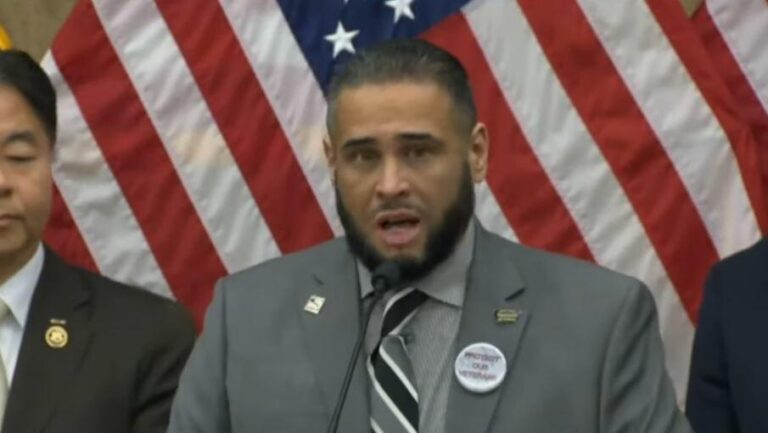Democrat presidential nominee Kamala Harris has endorsed a tax policy that is so fringe, even the legacy media has criticized the plan as unfair, “unconstitutional,” and “scary.”
Harris, who has been slow to roll out her 2024 policy positions or explain the supposed shift from her far-Left 2020 positions, has endorsed a tax on unrealized gains, which is a tax on money you have yet to collect.
The supposed “billionaire tax” is a 25% tax on unrealized capital gains for American households with wealth ironically totaling a fraction of a billion dollars, starting at $100 million.
Under Harris’ plan, for example, if you own a home and its value increases, you’ll be on the hook for paying taxes on the increased amount, even if you don’t sell the home.
In other words, you’d be paying taxes on money you never received — and may never receive, depending on the market shifts.
Bharat Ramamurti, an informal economic advisor to Harris, tried to defend the policy on CNBC, and was shut down by hosts Rebecca Quick and Joe Kernen.
“I think that this reaction to unrealized gains is a little funny, given that I bet that the majority of people watching right now are already paying a tax on unrealized gains. It’s called a property tax,” Ramamurti said.
“It just doesn’t seem fair in any sense of the word,” Quick said.
“Your value of your home never moves the way a stock moves, the way something else moves that you don’t sell,” Quick explained. “It’s also, property tax is a ‘use tax.’ You’re paying for the schools, you’re paying for the emergency services. Those are things that make absolute sense.”
Both hosts agreed the tax is likely “unconstitutional.”
Moreover, Forbes also ran a piece from senior contributor Robert W. Wood that is highly critical of the plan, arguing it would be close to impossible to implement and deeming it a “scary” proposal.
“Apart from policy, there are administrative issues galore,” Wood highlights. “How do you go about valuing everything every year to be taxed? Public company stock would be straightforward. But most assets could be a nightmare, and who in the end gets to carry the day on value? Disputes about value in tax cases are legendary and voluminous. Nearly every estate tax case with the IRS includes valuation disputes, often with competing experts. In income tax cases, charitable contributions of noncash assets such as real estate or crypto often also end up in major valuation fights.”
“What is arguably the scariest part of this idea? What if this opens the door to a more generalized effort by the government to tax you on something that you still own?” he continues. “Right now the proposal is only to use this wealth tax for the truly wealthy. Not just billionaires, but also anyone with at least $100 million.”
“Once we start down this path, could we some years from now face a tax like this for someone with $20 million, $10 million, even $1 million? You get the idea,” the Forbes piece added.
The article similarly highlighted how the tax could be unconstitutional.
“Even if the ‘billionaire’s tax’ to hit anyone at $100 million passes, there could be court challenges based on what the U.S. Constitution says about the government’s taxing power,” Wood said. “The Supreme Court has not fully ruled on a question like this, although one recent guidepost came in a 2024 tax case, Moore vs. USA, in which the Supreme Court upheld a tax on undistributed foreign assets.”



